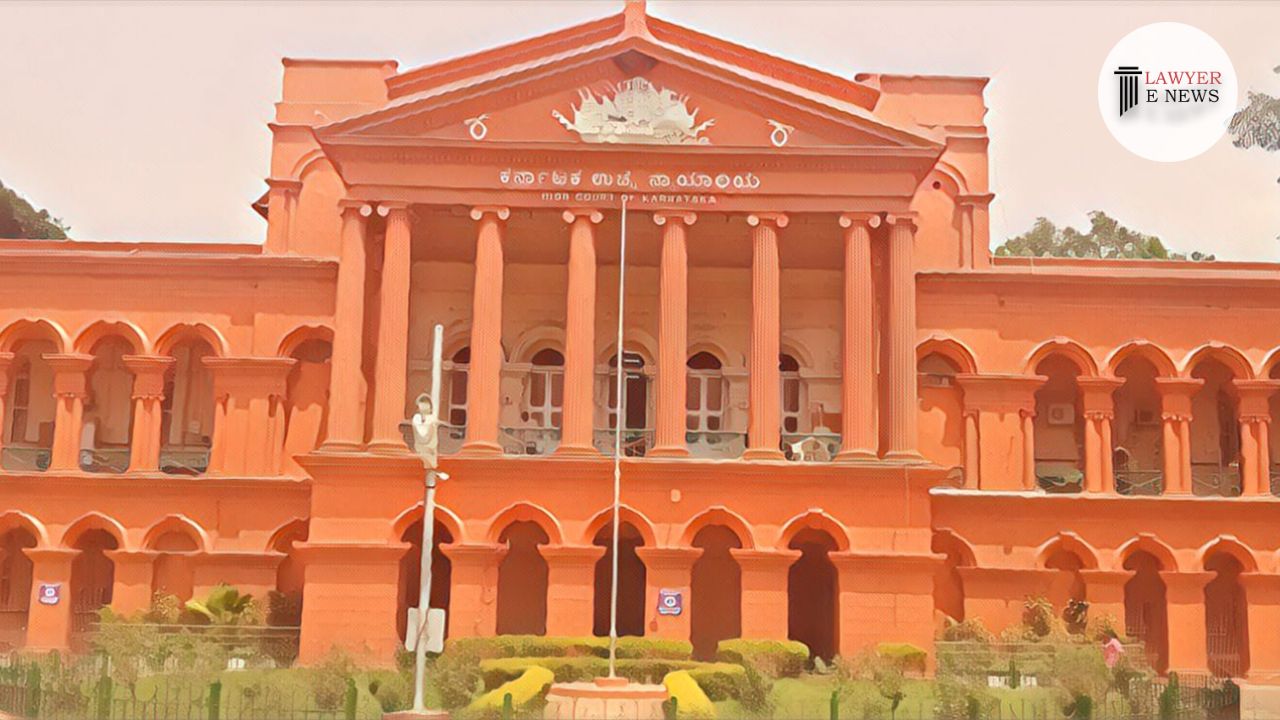-
by Admin
15 February 2026 5:35 AM



High Court Sets Aside Trial Court’s Rejection, Citing Necessity of Trial to Determine True Nature of Alleged Partition
In a significant judgment, the High Court of Karnataka at Bengaluru has reinstated a suit for partition and separate possession, overturning the trial court’s rejection of the plaint. The decision, rendered by a bench comprising Hon’ble Mrs. Justice Anu Sivaraman and Hon’ble Mr. Justice Anant Ramanath Hegde, emphasizes the importance of a trial in resolving disputes involving complex family arrangements and potential new causes of action.
The appellants, descendants of the late Nagaraju, filed a suit for partition and separate possession of their alleged 1/24th share in the family property. The trial court had rejected the plaint under Order VII Rule 11(a) and (d) of the Code of Civil Procedure (CPC), citing lack of cause of action and the bar of limitation due to a previously withdrawn suit. The appellants argued that the previous withdrawal was based on assurances from the defendants that the properties would be amicably divided.
The High Court observed that the plaint contained sufficient facts to constitute a cause of action. “These bundle of facts narrated in the plaint constitutes a cause of action to have recourse in the court of law,” the bench noted. The court further stated that issues of limitation required a trial for proper adjudication. “The plaint cannot be rejected on the plea of limitation at this stage based on the plea of limitation in the written statement,” the court explained.
Bar on Fresh Suit Under Order XXIII Rule 1(4)(b) CPC
The trial court had applied Order XXIII Rule 1(4)(b) of the CPC, which precludes the filing of a fresh suit if a previous suit was withdrawn without permission to file afresh. However, the High Court noted that the withdrawal memo in the previous suit indicated an understanding between the parties for an out-of-court settlement. “The memo speaks about an alleged agreement relating to the division of the properties between the parties,” the court pointed out, thus indicating that the withdrawal was not a simple abandonment.
Regarding the trial court’s finding of suppression of facts, the High Court emphasized the necessity of a trial to determine the true nature of the alleged partition. “Suppression of fact in the previous suit may result in some other consequences but not a dismissal of the suit for partition,” the court observed.
The judgment delves into the principles of evaluating the rejection of plaints and the applicability of limitations. The court reiterated that a cause of action in a suit for partition often involves recurring issues until the properties are divided by metes and bounds. The court referenced several decisions, including Tippawwa vs. Vithal and Another and S K Lakshminarasappa vs. B Rudraiah & Others, to underscore the maintainability of second suits for partition in similar circumstances.
Justice Anu Sivaraman remarked, “In case the defendants do not honour the promise, it would constitute a new cause of action for the plaintiffs and to institute a suit on a new cause of action in a suit for partition, permission is not required.”
The High Court’s decision to set aside the trial court’s order and decree underscores the judiciary’s commitment to ensuring that complex family disputes are thoroughly examined through trials. By restoring the suit for trial on merits and directing the plaintiffs to deposit Rs. 1 lakh to safeguard the defendants’ interests, the judgment paves the way for a fair and detailed adjudication of the partition claims. This ruling is expected to influence future cases involving similar legal issues, emphasizing the judiciary’s role in balancing procedural rules with substantive justice.
Date of Decision: 19th June 2024
SMT. GANGAMMA VS SMT. THOLASAMMA
